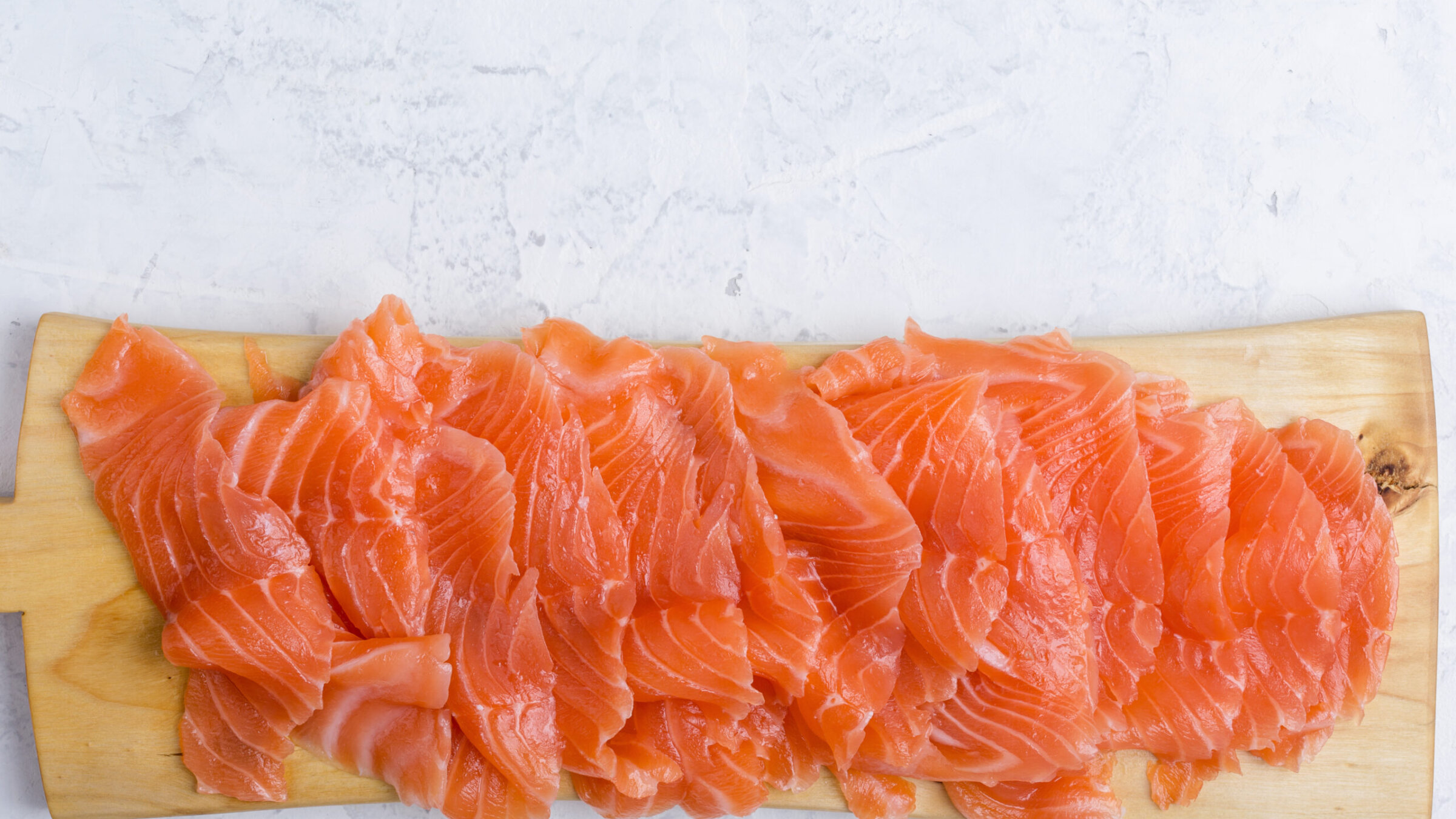Lox block: UWS congregation takes smoked salmon off the menu, citing environmental concerns
“We know that for some this is a heretical move,” wrote a synagogue official

B’nai Jeshurun, a synagogue on Manhattan’s Upper West Side, said it was eliminating cured salmon from its kiddush menu due to environmental concerns. (Getty/istetiana)
(New York Jewish Week) — A synagogue on the Upper West Side has announced that it will no longer serve lox — otherwise known as cured salmon — during its weekly kiddush lunches that follow Saturday morning Shabbat services.
Rabbi Shuli Passow, the director of community engagement at B’nai Jeshurun, wrote in an article posted on the synagogue’s website Thursday that the popular Ashkenazi delicacy will be “eliminated from the menu so we can do our part to reduce the environmental impact of pollution and overfishing.”
“We know that for some this is a heretical move,” Passow wrote. “We are here to support you as you process this change.”
The article, “The Return of the Community Kiddush,” highlighted the reemergence of kiddush, a beloved post-services tradition, which was halted during the COVID-19 pandemic. In the piece, Passow explained that, following small group conversations with multiple sectors of the synagogue, many changes are being made to the meal, including smaller tables and chairs for young families and concluding the meal with a “song of gratitude.”
“While not everyone agrees on what food should be served (no surprise there!), there was widespread consensus that what we eat and how we eat it should intentionally express our values,” Passow wrote.
Passow acknowledged this might “be in tension with others.”
“We hope to achieve an overall balance even if one value is sometimes favored over another,” she wrote, adding that the congregation will solicit feedback and make “further refinements” as needed.
According to The World Counts, a data project that brings awareness to environmental damage and climate change, the world’s oceans could be virtually emptied of fish by 2048. The National Oceanic and Atmospheric Administration’s Fisheries division determined in August 2018 that five Pacific salmon stocks are now “overfished” and one stock is “subject to overfishing.”
Some lox purveyors have pledged to move toward more sustainable sources of salmon, the Forward reported in 2020. Brooklyn-based Acme Smoked Fish, for example, claims on its website to work with salmon suppliers who adhere to standards set by the Global Seafood Alliance, an industry watchdog.
This article originally appeared on JTA.org.
A message from our Publisher & CEO Rachel Fishman Feddersen

I hope you appreciated this article. Before you go, I’d like to ask you to please support the Forward’s award-winning, nonprofit journalism so that we can be prepared for whatever news 2025 brings.
At a time when other newsrooms are closing or cutting back, the Forward has removed its paywall and invested additional resources to report on the ground from Israel and around the U.S. on the impact of the war, rising antisemitism and polarized discourse.
Readers like you make it all possible. Support our work by becoming a Forward Member and connect with our journalism and your community.
— Rachel Fishman Feddersen, Publisher and CEO


























